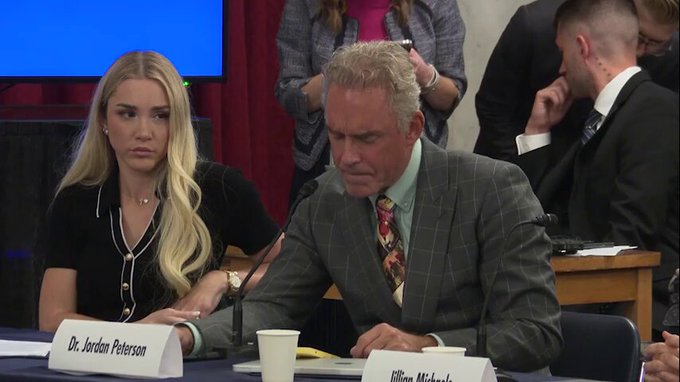A pregnant nurse in Ontario is fighting to keep her job after refusing the COVID vaccine, even as the country faces a shortage of nurses. Sandra Hartman, 35, made a plea to London Health Sciences Centre (LHSC) CEO, Jackie Scleifer Taylor, to reconsider her termination at a public forum. This article delves into Hartman’s appeal and the challenges faced by healthcare facilities dealing with staff shortages amidst vaccine mandates.
1. Sandra Hartman Pleads to Retain Job Amidst Pregnancy and Vaccine Refusal
Sandra Hartman, an eight-month pregnant nurse, expressed her desire to continue working at LHSC despite her refusal to take the experimental COVID vaccine. Hartman argued that she believed the need for the vaccine had passed and requested a change in policy from CEO Jackie Scleifer Taylor. However, she acknowledged that achieving such a change could be a time-consuming process.
2. Union Informs Hartman of Impending Termination
The Ontario Nurses Association, representing Hartman, notified her that she would be fired if she did not comply with the vaccine mandates. The union’s decision disregards evidence suggesting potential risks associated with the vaccines for pregnant women. Despite Hartman’s 12 years of dedicated service, CEO Taylor maintained that the hospital was merely adhering to policy guidelines established by public health officials.
3. CEO Taylor’s Response Lacks Sympathy
CEO Jackie Scleifer Taylor did not offer any concrete support for Hartman’s plea, emphasizing that collective scientific evidence and the protection of patients and staff were regularly debated. She hinted that the possibility of revising the COVID vaccine requirements would be based on evidence. It is unclear whether any changes would be made to accommodate Hartman’s situation.
4. Hartman Highlights the Impact of Her Case on Unvaccinated Nurses
Hartman argues that allowing her to continue working would set a precedent for other unvaccinated nurses to return to their jobs, thereby easing the strain caused by the nursing shortage. This becomes especially important as the healthcare system struggles to provide adequate care amid the shortage of nurses in Canada.
5. Anonymous Nurse Shares Insights on Nursing Crisis
An anonymous nurse disclosed that the combination of vaccine mandates and excessive workloads has caused a breakdown in the relationship between nurses and their patients. This sentiment aligns with the decreasing interest among Canadian students in pursuing nursing careers and the burden placed on current nurses due to the shortage.
6. LHSC’s Decision Amid Staffing Shortages
LHSC’s choice to terminate Hartman comes at a time when the facility is experiencing significant staff shortages. In an attempt to mitigate the situation, LHSC recently announced increased overtime pay for nurses, but the hospital remains short of approximately 500 nurses. In 2021, LHSC fired 84 employees who did not comply with the vaccine mandate, further exacerbating the workload for the remaining staff.
7. National Nursing Shortages and Vaccine Mandates
Hospitals across the country, including LHSC, are grappling with staffing shortages due to ongoing vaccine mandates. The issue extends beyond LHSC and necessitates urgent action to attract and retain medical personnel. Conservative party leader Pierre Poilievre condemned LHSC’s decisions and called for an end to vaccine mandates, suggesting that removing these barriers would facilitate the hiring of more doctors and nurses.
Pregnant Ontario Nurse Appeals Job Termination Due to COVID Vaccine Refusal Amid Nursing Shortage https://t.co/G15IDtdrdp
— The Carnivore Den (@CarnivoreDen) July 17, 2023
Conclusion
Sandra Hartman’s appeal to retain her job as a pregnant nurse refusing the COVID vaccine shines a light on the broader challenges faced by healthcare facilities amidst a nursing shortage and vaccine mandates. The LHSC’s decision to terminate Hartman has drawn criticism, with calls to end vaccine mandates in order to alleviate staffing issues. As the nursing crisis deepens, finding a balance between vaccination policies and accommodating individual circumstances becomes crucial to maintain the well-being of healthcare workers and patients alike.








